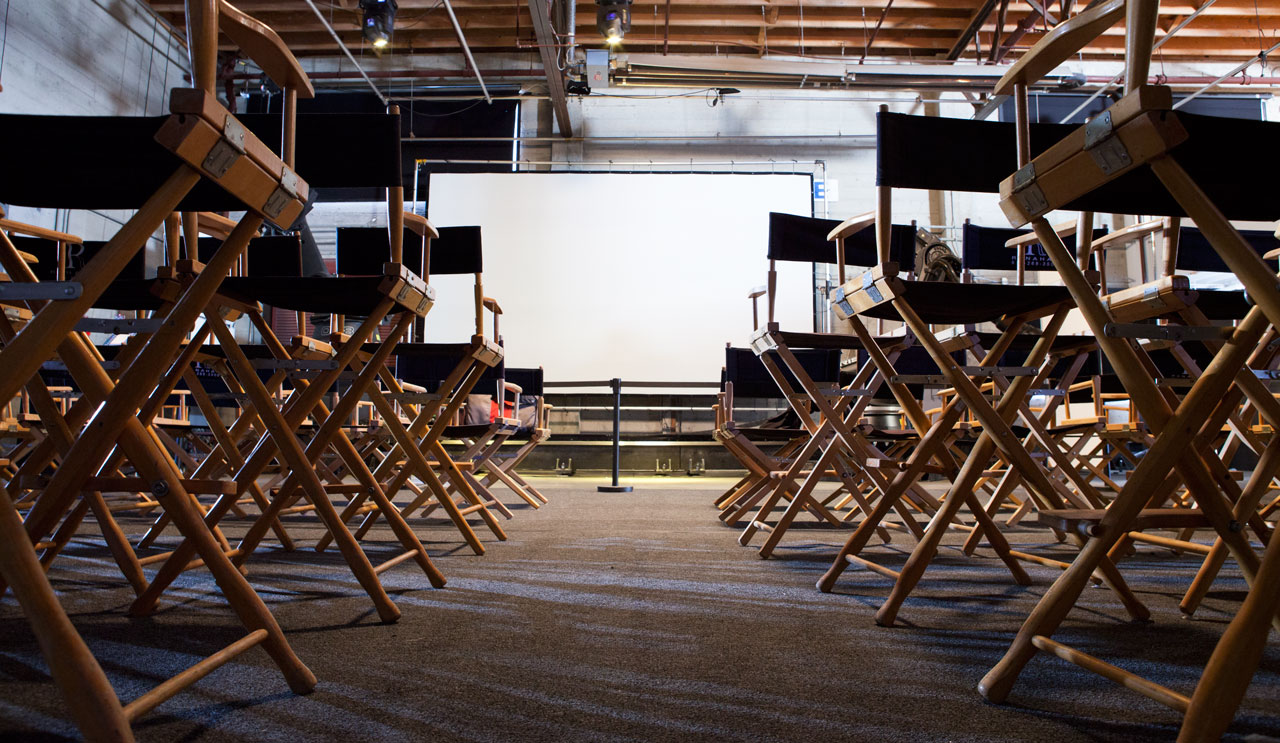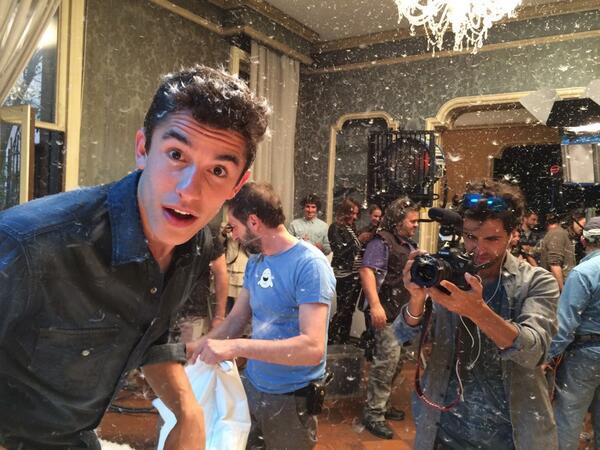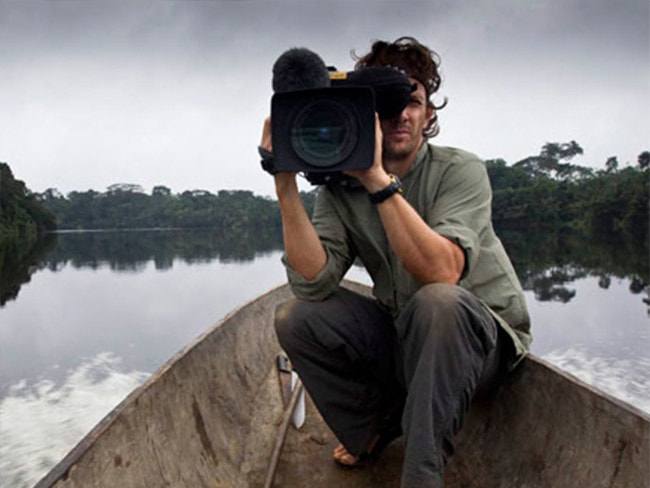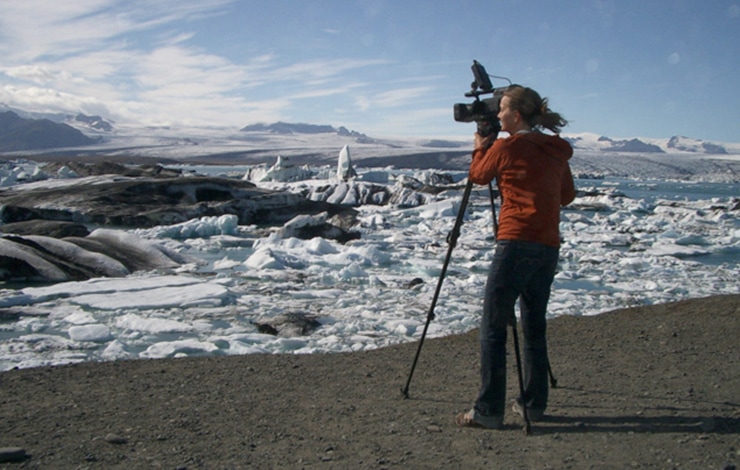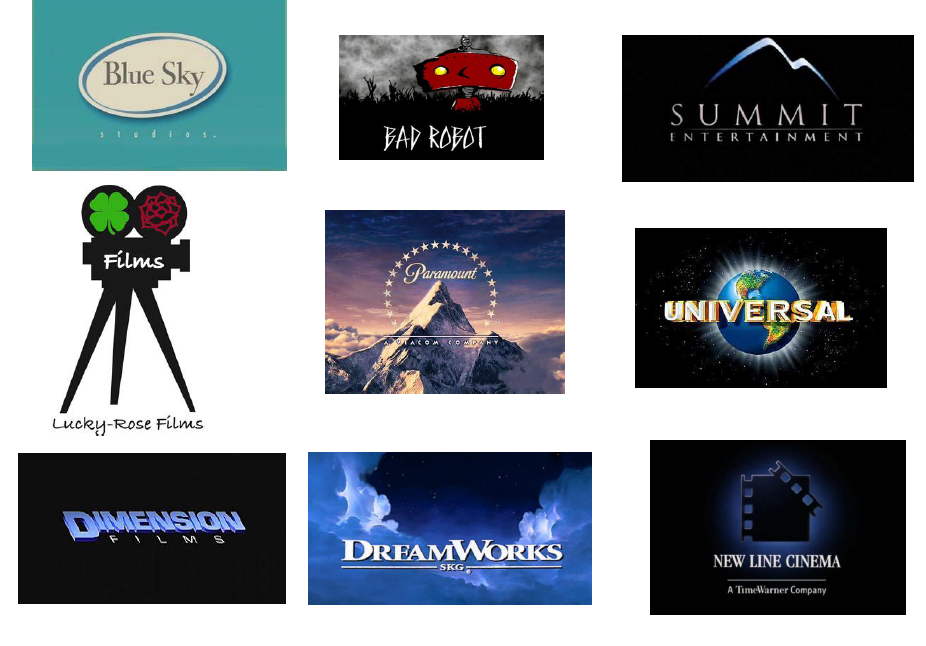Class Paperwork |
RCTV Paperwork |
Unit 10:
|
An important component of being career and college ready is for the students to gain “soft skills” during their time in high school. The CTE Department has committed to including the following objectives into their
10th grade pathway classes, which will allow the students to receive a badge upon completion of the course. Students will be able to:
|
Unit 9:
|
Analyze films, as well as various media products, produced using the performative model of documentary by way of a student generated analysis tool. Create a short film that rejects objectivity favoring emotion, highlighting the subjective or expressive aspect of the filmmaker’s own involvement with a subject to heighten the audience’s responsiveness to the subject and to this involvement. Base the film’s content on a specified audience market’s trends based on research and analysis, in addition to advocating one’s own production company’s mission and values. Concurrently, work in small production teams to produce RCTV segments for webcast. Build upon beginning level equipment by learning more advanced industry standard equipment. Work safely, ethically, and respectably in compliance with industry standards.
Students will be able to:
|
Unit 8:
|
Analyze films, as well as various media products, produced using the performative model of documentary by way of a student generated analysis tool. Create a short film that rejects objectivity favoring emotion, highlighting the subjective or expressive aspect of the filmmaker’s own involvement with a subject to heighten the audience’s responsiveness to the subject and to this involvement. Base the film’s content on a specified audience market’s trends based on research and analysis, in addition to advocating one’s own production company’s mission and values. Concurrently, work in small production teams to produce RCTV segments for webcast. Build upon beginning level equipment by learning more advanced industry standard equipment. Work safely, ethically, and respectably in compliance with industry standards.
Students will be able to:
|
Unit 7: Reflexive Model |
Deconstruct films, as well as various media products, produced using the reflexive model of documentary by way of a student generated analysis tool. Create a short film, which could include the mockumentary format, calling attention to the assumptions and conventions that govern filmmaking, increasing the viewer’s awareness of how film construct representations of reality. Base the film’s content on a specified audience market’s trends based on research and analysis, in addition to advocating one’s own production company’s mission and values. Concurrently, work in small production teams to produce RCTV segments for webcast. Build upon beginning level equipment by learning more advanced industry standard equipment. Work safely,
ethically, and respectably in compliance with industry standards. Students will be able to:
|
Unit 6:
|
Assess films, as well as various media products, produced using the poetic model of documentary by way of a student generated analysis tool. Create a short film, perhaps bearing a close resemblance to experimental and avant-garde film, emphasizing visual associations, tonal or rhythmic qualities, description, and form. Base the film’s content on a specified audience market’s trends based on research and analysis, in addition to advocating one’s own production company’s mission and values. Concurrently, work in small production teams to produce RCTV segments for webcast. Build upon beginning level equipment by learning more advanced industry standard equipment. Work safely, ethically, and respectably in compliance with industry standards.
Students will be able to:
|
Unit 5: Entrepreneur-ship &
|
Evaluate personal goals in comparison to the steps required to earn a living in the film industry. Distinguish the differences between corporate studio versus independent and start-up production companies. Develop a hypothetical film production company as a small by way of incorporation, creation of a business plan, and strategizing the nuances of becoming and employer in conjunction with being a cinematic artist.
Students will be able to:
|
Unit 4: Participatory Model |
Evaluate films, as well as various media products, produced using the participatory model of documentary by way of a student generated analysis tool. Create a short film emphasizing the interaction between filmmaker and subjects. Expand upon industry typical interviews or other forms of even more direct involvement from conversations to provocations to distinguish the work. Research archival footage to examine historical issues and constructing deeper connections to the subject matter. Base the film’s content on a specified audience market’s trends based on research and analysis, in addition to advocating one’s own production company’s mission and values. Concurrently, work in small production teams to produce RCTV segments for webcast. Build upon beginning level equipment by learning more advanced industry standard equipment. Work safely, ethically, and respectably in compliance with industry standards.
Students will be able to:
|
Unit 3: Observational Model |
Compare and contrast films, as well as various media products, produced using the observation model of documentary by way of a student generated analysis tool. Create a short film where the structure is grounded in the use of observations of an unobtrusive camera to create direct engagement with the everyday life of subjects. Base the film’s content on a specified audience market’s trends based on research and analysis, in addition to advocating one’s own production company’s mission and values. Concurrently, work in small production teams to produce RCTV segments for webcast. Build upon beginning level equipment by learning more advanced industry standard equipment. Work safely, ethically, and respectably in compliance with industry standards.
Students will be able to:
|
|
Unit 2: Expository Model |
Explore films, as well as various media products, produced using the expository model of documentary by way of a student generated analysis tool. Create a short film where the structure is grounded in a series of assertions backed up by evidence. The assertions may be presented through verbal commentary from a voice-over narrator, while images provide the evidence. Base the film’s content on a specified audience market’s trends based on research and analysis, in addition to advocating one’s own production company’s mission and values. Concurrently, work in small production teams to produce RCTV segments for webcast.
Build upon beginning level equipment by learning more advanced industry standard equipment. Work safely, ethically, and respectably in compliance with industry standards. Students will be able to:
|
Unit 1: Introduction to Expository Filmmaking |
An introduction to industry sector health and safety standards as well as ethical and legal responsibilities of filmmakers will be offered. Expanding the view of filmmaking to include the array of documentary film genres, discover the models of discourse available to the cinematic artist and broadcast professionals. Develop an individual “production company” that will guide course projects based on themes of community to global mindedness. Form small production teams that will, on a rotating bi-weekly basis, create RCTV segments from pre-production planning, to post-production computer based editing, to school and community wide publicity of the online webcast.
Students will be able to:
|
| ||||||||||||||||||


